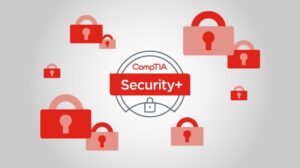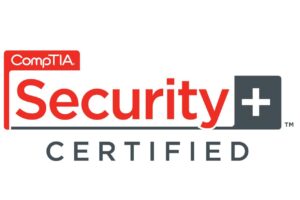Introduction
So, you’re thinking about diving into the world of cybersecurity? Awesome choice! Cybersecurity is a booming field with tons of opportunities. But before you jump in, it’s crucial to understand what it takes to land an entry-level job in this dynamic and ever-evolving industry. Let’s break it down step by step, so you know exactly what you need to get started.

Understanding Cybersecurity
First things first, what exactly is cybersecurity? At its core, cybersecurity is all about protecting systems, networks, and data from digital attacks. These attacks are usually aimed at accessing, changing, or destroying sensitive information, extorting money, or interrupting normal business processes. In this field, you’ll find roles ranging from security analysts to ethical hackers, all working together to safeguard digital assets.
Why Cybersecurity?
Why should you consider a career in cybersecurity? For starters, cyber threats are on the rise, and organizations across all sectors are desperate for skilled professionals to help them defend against these threats. Plus, the job market for cybersecurity is incredibly robust, with high salaries and excellent growth potential. It’s like being a digital superhero—minus the cape, of course!
Educational Requirements
Alright, let’s talk education. While you don’t always need a four-year degree to break into cybersecurity, having one can definitely give you an edge. Degrees in computer science, information technology, or cybersecurity itself are particularly valuable. But what’s even more crucial is your willingness to continuously learn and stay updated with the latest technologies and threats.
Relevant Certifications

Certifications are your golden tickets in cybersecurity. They validate your skills and knowledge, making you more attractive to employers. Here are a few must-have certifications for entry-level positions:
- CompTIA Security+: A great starting point, covering basic cybersecurity concepts and practices.
- Certified Ethical Hacker (CEH): Focuses on how to think like a hacker to better protect systems.
- Cisco Certified CyberOps Associate: Concentrates on security operations and monitoring.
Technical Skills Needed
Now, let’s dive into the technical skills you’ll need. These are the bread and butter of any cybersecurity role:
- Networking Fundamentals: Understanding how networks operate is crucial. This includes knowing about TCP/IP, DNS, and other network protocols.
- Knowledge of Operating Systems: You should be familiar with Windows, Linux, and MacOS, as each has its own security nuances.
- Understanding Firewalls and VPNs: These tools are essential for protecting networks, and you should know how to configure and manage them.
Soft Skills in Cybersecurity
Technical skills are vital, but don’t underestimate the power of soft skills. In cybersecurity, you’ll need:
- Analytical Thinking: The ability to analyze and interpret data to identify threats.
- Problem-Solving: Quick thinking to devise solutions on the fly.
- Communication Skills: Explaining complex concepts in simple terms to non-technical stakeholders is key.
Experience and Internships
Experience can be a game-changer. Internships provide hands-on experience, which is invaluable when starting out. Look for opportunities through your school, online job boards, or by networking with industry professionals. Real-world experience will not only enhance your resume but also give you practical skills that you can’t learn in a classroom.
Networking and Industry Connections
Speaking of networking, it’s essential in cybersecurity. Joining professional associations like (ISC)² or ISACA can help you connect with industry veterans. Attending cybersecurity conferences and meetups is another excellent way to build your network and learn about the latest trends and technologies.
Online Courses and Bootcamps
If formal education isn’t your thing, or you want to supplement your learning, online courses and bootcamps are fantastic alternatives. Websites like Coursera, Udemy, and platforms like Cybrary offer comprehensive courses that can help you build the necessary skills. These options are often more affordable and flexible, allowing you to learn at your own pace.
Building a Strong Resume
Your resume is your first impression. Make sure it’s a good one! Highlight your education, certifications, and any relevant experience. Include specific skills like knowledge of programming languages, familiarity with security tools, and any projects you’ve worked on. Tailoring your resume to match the job description can make a significant difference.
Preparing for Interviews
Interviews can be nerve-wracking, but with some preparation, you can ace them. Research common cybersecurity interview questions and practice your answers. Be ready to demonstrate your problem-solving skills through scenario-based questions. Also, don’t forget to showcase your soft skills and passion for cybersecurity.
Common Entry-Level Positions
Wondering what job titles to look for? Here are a few common entry-level positions in cybersecurity:
- Security Analyst: Monitors networks for security breaches and investigates incidents.
- Incident Responder: Deals with security incidents and mitigates damage.
- IT Auditor: Ensures that an organization’s IT systems comply with internal and external regulations.
Challenges in Landing a Cybersecurity Job
Landing your first cybersecurity job can be challenging. You might face stiff competition and the classic “need experience to get experience” conundrum. But don’t get discouraged. Focus on gaining practical skills, networking, and continuously learning. Consider starting in a related IT role and transitioning to cybersecurity later.
Conclusion
To wrap it up, breaking into cybersecurity requires a mix of education, certifications, technical and soft skills, hands-on experience, and a strong network. It’s a journey, but with determination and the right resources, you can succeed. Cybersecurity is a rewarding field with endless opportunities. So gear up, keep learning, and get ready to make a difference in the digital world.
FAQs
- What is the average salary for entry-level cybersecurity jobs?
- Entry-level cybersecurity jobs typically offer salaries ranging from $60,000 to $90,000 annually, depending on location and the specific role.
- Can I get a cybersecurity job without a degree?
- Yes, it’s possible. Certifications, hands-on experience, and relevant skills can often compensate for the lack of a formal degree.
- How long does it take to get into cybersecurity?
- The timeline varies, but with the right education and certifications, you can start applying for entry-level positions within a year or two.
- What are the best resources to learn cybersecurity?
- Online platforms like Coursera, Udemy, and Cybrary, as well as cybersecurity bootcamps, are excellent resources to start learning.
- Is cybersecurity a stressful job?
- It can be, especially during incidents and breaches. However, the excitement and the rewarding nature of the work often outweigh the stress.
0 Comments